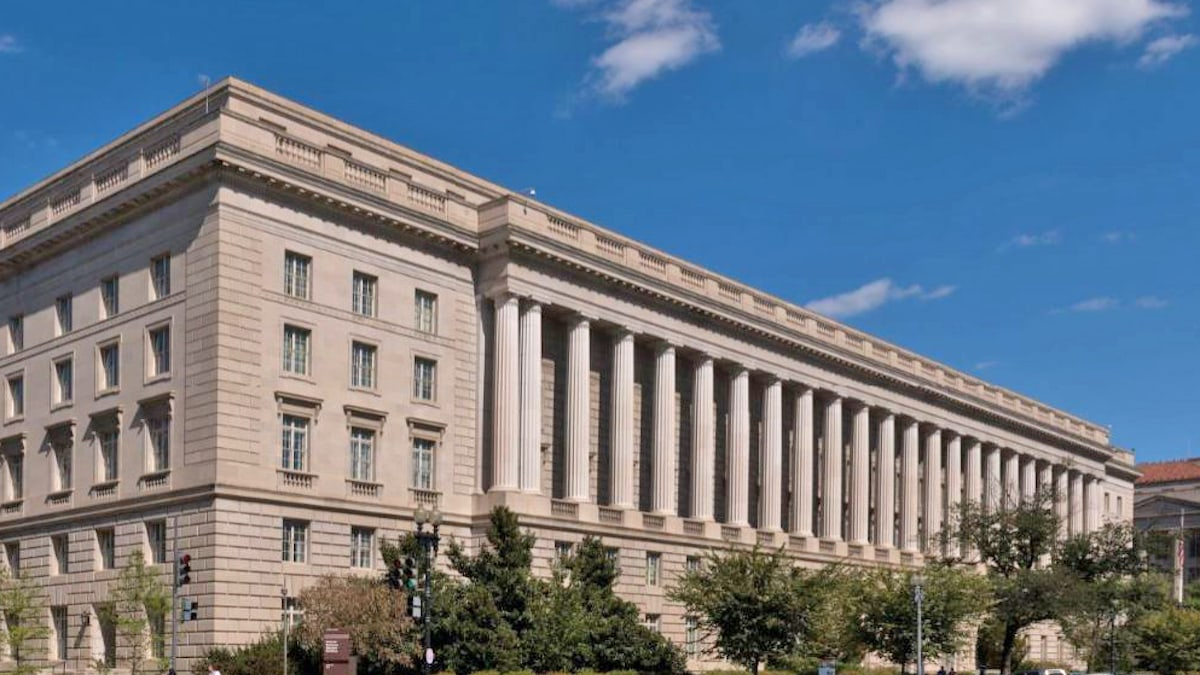
Beaird Harris Ranks #5 in Financial Planning Magazine’s List of Best RIAs to Work For
Beaird Harris has been ranked as #5 out of 52 firms in Financial Planning’s list of Best RIAs to Work for.


IRS postpones various tax filing and tax payment deadlines for storm victims located in certain counties in Texas. Affected taxpayers in specified counties will have until Feb. 3, 2025, to file returns and pay any taxes that were originally due during this period.
The IRS issued guidance granting relief to taxpayers affected by Hurricane Beryl in Texas that began on Jul. 5, 2024. Taxpayers now have until Feb. 3, 2025, to file various individual and business tax returns and make tax payments. The IRS is offering the relief to those in areas designated by the Federal Emergency Management Agency, currently including Taxpayers residing or having a business Anderson, Angelina, Aransas, Austin, Bowie, Brazoria, Brazos, Burleson Calhoun, Cameron, Camp, Cass, Chambers, Cherokee, Colorado, Dewitt, Fayette, Fort Bend, Freestone, Galveston, Goliad, Gregg, Grimes, Hardin, Harris, Harrison, Hidalgo, Houston, Jackson, Jasper, Jefferson, Kenedy, Kleberg, Lavaca, Lee, Leon, Liberty, Madison, Marion, Matagorda, Milam, Montgomery, Morris, Nacogdoches, Newton, Nueces, Orange, Panola, Polk, Refugio, Robertson, Rusk, Sabine, San Augustine, San Jacinto, San Patricio, Shelby, Trinity, Tyler, Upshur, Victoria, Walker, Waller, Washington, Webb, Wharton and Willacy counties. Additional counties may be added at later dates so it is recommended to check the IRS guidance for updated counties.
The relief postpones various tax filing and payment deadlines that were originally due on or after Jul. 5, 2024, and before Feb. 3, 2025. As a result, affected individuals and businesses will have until Feb. 3, 2025, to file returns and pay any taxes that were originally due during this period. This includes individuals who had a valid extension to file their 2023 income tax return due to run out on Oct. 15, 2024, but tax payments related to these 2023 returns that were due on Apr. 15, 2024 are not eligible for this relief. It also applies to businesses with an original or extended due date including, among others, calendar-year partnerships and S corporations whose 2023 extensions run out on Sept. 16, 2024, and calendar-year corporations whose 2023 extensions run out on Oct. 15, 2024.
Under section 7508A, the IRS gives affected taxpayers until Feb. 3, 2025, to file most tax returns (including individual, corporate, and estate and trust income tax returns; partnership returns, S corporation returns and trust returns; estate, gift and generation-skipping transfer tax returns; annual information returns of tax-exempt organizations; and employment and certain excise tax returns), that have either an original or extended due date occurring on or after Jul. 5, 2024, and before Feb. 3, 2025, are granted additional time to file through Feb. 3, 2025.
The Feb. 3, 2025, due date applies to quarterly estimated income tax payments normally due on Sep. 16, 2024 and Jan. 15, 2025; quarterly payroll and excise tax returns normally due on Jul. 31, 2024, Oct. 31, 2024, and Jan. 31, 2025. Penalties on payroll and excise tax deposits due on or after Jul. 5, 2024 and before Jul. 12, 2024 will be abated as long as the deposits are made by Jul. 22, 2024.
The IRS relief includes other time-sensitive actions described in Reg. section 301.7508A-1(c)(1) and Rev. Proc. 2018-58, including filing Form 5500 series returns due on or after the respective disaster due on or after Jul. 5, 2024 and before Feb. 3, 2025. The IRS relief also applies to transferors who are not affected taxpayers but who are involved in a section 1031 like-kind exchange pursuant to section 17.02(2) of Rev. Proc. 2018-58.
Unless an act is specifically listed in Rev. Proc. 2018-58, the postponement of time to file and pay does not apply to information returns in the W-2, 1094, 1095, 1097, 1098 or 1099 series; to Forms 1042-S, 3921, 3922 or 8027; or to employment and excise tax deposits. However, penalties on deposits due on or after Jul. 5, 2024, and before Jul. 22, 2024, will be abated as long as the tax deposits were made by Jul. 22, 2024.
In addition to extensions of time to file tax returns and complete certain actions, federal disaster declarations offer taxpayers special options with respect to gain/loss recognition. Taxpayers who experience a casualty loss in a federally-declared disaster area may qualify to recognize losses in the year prior to the year the casualty actually occurred under section 165(i). Taxpayers who realize gains by receiving insurance proceeds in excess of basis may be able to defer gain recognition by reinvesting in qualified property under section 1033. Some of these actions are time sensitive, so taxpayers are encouraged to contact their tax advisor to take advantage of the full range of relief options. Taxpayers that will claim a disaster loss should note in bold letters at the top of their return the FEMA disaster declaration number. For the Jul. 5, 2024 Hurricane Beryl in Texas, the designation is 4798-DR.
Please see the applicable news release and refer to Publication 547 and Instructions to Form 4684 Casualties and Thefts for instructions.
The IRS automatically provides filing and penalty relief to any taxpayer with an IRS address of record located in the disaster area. However, if an affected taxpayer receives a late filing or late payment penalty notice from the IRS that has an original or extending filing, payment or deposit due date falling within the postponement period, the taxpayer or their representative should contact the IRS to have the penalty abated.
The IRS will also work with any taxpayer who lives outside the disaster area but whose records necessary to meet a deadline occurring during the postponement period are in the affected area. Taxpayers qualifying for relief who live outside the disaster area need to contact the IRS at 866-562-5227. This also includes workers assisting the relief activities who are affiliated with a recognized government or philanthropic organization.
Qualified disaster relief payments are generally excluded from gross income. This means that affected taxpayers can exclude from their gross income amounts received from a government agency for reasonable and necessary personal, family, living or funeral expenses, as well as for the repair or rehabilitation of their home, or for the repair or replacement of its contents. See Publication 525 for details.
Additional relief may be available to affected taxpayers who participate in a retirement plan or individual retirement arrangement (IRA). For example, a taxpayer may be eligible to take a special disaster distribution that would not be subject to the additional 10% early distribution tax and allows the taxpayer to spread the income over three years. Taxpayers may also be eligible to make a hardship withdrawal. Each plan or IRA has specific rules and guidance for their participants to follow.
This article was written by Alina Solodchikova, Marissa Lenius, Evan Stone, Jackie Sullivan and originally appeared on 2024-07-23. Reprinted with permission from RSM US LLP.
© 2024 RSM US LLP. All rights reserved. https://rsmus.com/insights/tax-alerts/2024/irs-extends-tax-filing-deadline-taxpayers-certain-texas-counties.html
RSM US LLP is a limited liability partnership and the U.S. member firm of RSM International, a global network of independent assurance, tax and consulting firms. The member firms of RSM International collaborate to provide services to global clients, but are separate and distinct legal entities that cannot obligate each other. Each member firm is responsible only for its own acts and omissions, and not those of any other party. Visit rsmus.com/about for more information regarding RSM US LLP and RSM International.
The information contained herein is general in nature and based on authorities that are subject to change. RSM US LLP guarantees neither the accuracy nor completeness of any information and is not responsible for any errors or omissions, or for results obtained by others as a result of reliance upon such information. RSM US LLP assumes no obligation to inform the reader of any changes in tax laws or other factors that could affect information contained herein. This publication does not, and is not intended to, provide legal, tax or accounting advice, and readers should consult their tax advisors concerning the application of tax laws to their particular situations. This analysis is not tax advice and is not intended or written to be used, and cannot be used, for purposes of avoiding tax penalties that may be imposed on any taxpayer.

Beaird Harris has been ranked as #5 out of 52 firms in Financial Planning’s list of Best RIAs to Work for.

The IRS’s detailed review of ERC claims uncovers significant risks, leading to a continued moratorium, slow processing of lower-risk claims, and a call for filers…

A tax planning guide for individual income tax planning and family tax planning strategies at 2024 year-end moving into 2025.
Schedule a complimentary call today. We’ll help you get started and learn more about Beaird Harris.